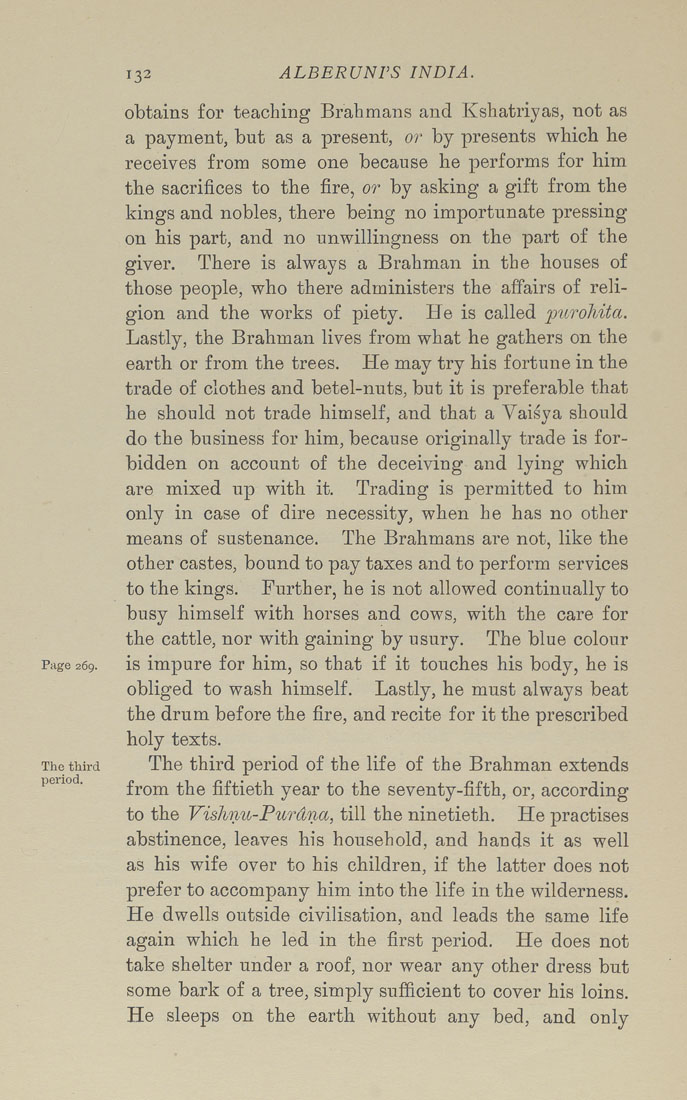132 ALBERUNTS INDIA.
obtains for teaching Brahmans and Kshatriyas, not as
a payment, but as a present, or by presents which he
receives from some one because he performs for him
the sacrifices to the fire, or by asking a gift from the
kings and nobles, there being no importunate pressing
on his part, and no unwillingness on the part of the
giver. There is always a Brahman in the houses of
those people, who there administers the affairs of reli¬
gion and the works of piety. He is called purohita.
Lastly, the Brahman lives from what he gathers on the
earth or from the trees. He may try his fortune in the
trade of clothes and betel-nuts, but it is preferable that
he should not trade himself, and that a Vaisya should
do the business for him, because originally trade is for¬
bidden on account of the deceiving and lying which
are mixed up with it. Trading is permitted to him
only in case of dire necessity, when he has no other
means of sustenance. The Brahmans are not, like the
other castes, bound to pay taxes and to perform services
to the kings. Further, he is not allowed continually to
busy himself with horses and cows, with the care for
the cattle, nor with gaining by usury. The blue colour
Page 269. is impure for him, so that if it touches his body, he is
obliged to wash himself. Lastly, he must always beat
the drum before the fire, and recite for it the prescribed
holy texts.
The third The third period of the life of the Brahman extends
from the fiftieth year to the seventy-fifth, or, according
to the Vishnu-Purdna, till the ninetieth. He practises
abstinence, leaves his household, and hands it as well
as his wife over to his children, if the latter does not
prefer to accompany him into the life in the wilderness.
He dwells outside civilisation, and leads the same life
again which he led in the first period. He does not
take shelter under a roof, nor wear any other dress but
some bark of a tree, simply sufficient to cover his loins.
He sleeps on the earth without any bed, and only
period.
|








